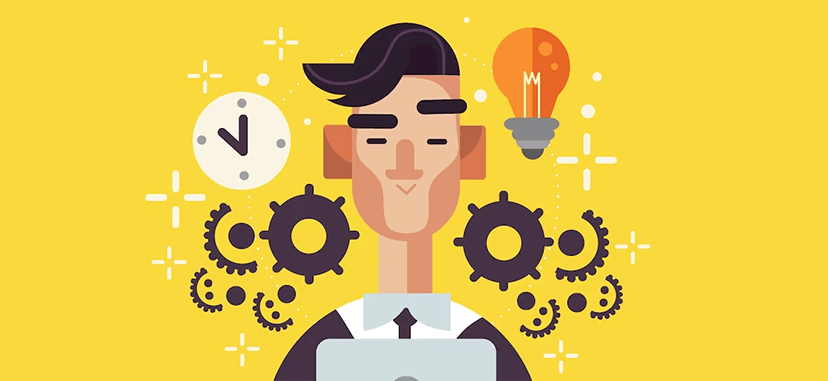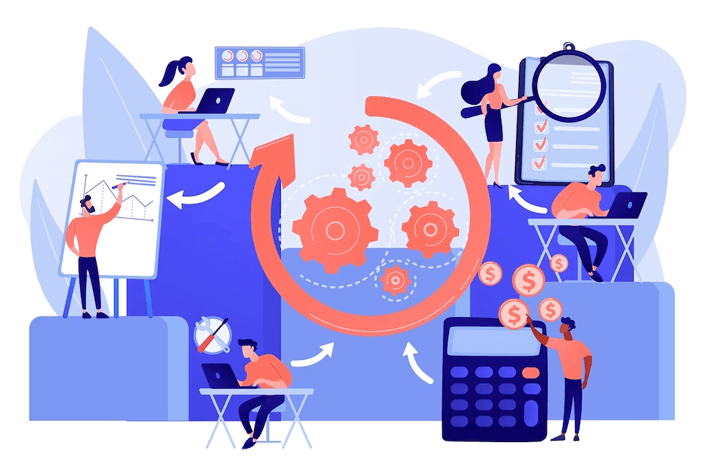
Click the button to start reading
Beyond Hard Work: How To Work Smarter, Not Harder
Welcome to the age of efficiency, where the goal is not to work longer but to work smarter.
The saying “work smarter, not harder” has become more than just a catchy phrase—it’s a philosophy that many successful individuals and companies live by. It challenges the notion that hard work alone leads to success. Instead, it advocates for the clever use of resources, practical strategies, and innovative thinking to achieve goals more efficiently.
Our fast-paced work environment demands agility and adaptability, making smart work an essential skill to master. Working smarter can help us navigate through our professional lives more effectively, maximizing output without increasing hours spent on tasks.
Working smarter can give us a competitive edge, allowing us to deliver high-quality results without burning ourselves out.
For any managers out there feeling anxious about the popularity of this phrase, don’t panic. Working smarter does not replace hard work; it’s just a shift to making the most of emerging technology and tactics to increase growth and productivity instead of simply throwing more person-hours at the problem.
This article takes a closer look at the philosophy of working smarter, not harder, its critical role in contemporary workplaces, and provides actionable tips to help you transform your work habits for the better.

What Is Work Smarter Not Hard At Work?
Working smarter, a concept that seems to be shrouded in ambiguity for many, is essentially about leveraging your resources, skills, and time effectively to maximize productivity.
It’s about creating an optimal balance between effort and outcome, making sure that each minute of your time and every bit of your energy translates into meaningful output. This means taking advantage of technology, outsourcing tasks when necessary, delegating efficiently, and employing techniques to make your work easier and more manageable.
It’s about thinking creatively and critically, adapting swiftly, and focusing on results rather than just tasks.
To make the concept clearer, let’s draw a comparison.
Imagine two gardeners who are given the task of watering a large garden.
The first gardener, a hard worker, grabs a watering can and starts watering each plant individually, spending hours on end to finish the task.
The second gardener, a smart worker, spends a little time setting up a sprinkler system that efficiently waters the whole garden, saving him time and effort.
The result?
Both gardens get watered, but the smart worker achieves the same outcome with significantly less effort and in less time.
Thus, the difference between working harder and working smarter lies in the approach.
Working harder typically involves putting in more hours and exerting more effort, often leading to burnout. It’s a linear approach, where output is directly proportional to input.
On the other hand, working smarter is about making your input work harder for you. It’s a non-linear approach where innovative strategies, effective tools, and a focus on efficiency can lead to higher output without proportionally increasing input.
The key is not to dismiss hard work altogether but to combine it with smart strategies to enhance productivity. After all, a good work ethic, coupled with a smart approach, can lead to not only greater productivity but also a more fulfilling work experience.

The Evolution of the Work Smarter Philosophy
The “work smarter, not harder” philosophy did not develop in a vacuum. Instead, it was born out of a shift in understanding how productivity, mental agility, and worker satisfaction interplay. As we explore this evolution, we will see how mindset and mental agility play pivotal roles in smart work.
Let’s take a trip down memory lane, back to a time when work meant physical labor, long hours, and a whole lot of sweat.
In those days, the notion of “working harder” was the gold standard, and the idea of “working smarter” was practically non-existent. Fast forward to today, and the phrase “work smarter, not harder” is one we hear every day.
Back in the day, work was a one-track journey. You had tasks, you did them, end of story. But as we evolved, we started to look beyond mere task completion. We began to realize that working without understanding the “why” behind our actions was like running on a hamster wheel.
That’s when the spotlight turned to an outcome-focused mindset.
This mindset champions the importance of the results produced, the value they add, and the impact they create. It’s not just about doing the work; it’s about doing the right work.
Strategic thinking, prioritization, effective decision-making, all these elements suddenly took center stage. And voila, work started to get smarter.
But here’s the thing: having the right mindset is crucial, but it’s not enough on its own.
To truly work smarter, you need a secret weapon: mental agility. Being mentally agile means being flexible and adaptable, being able to think on your feet and bounce back from challenges. It enables us to switch tasks, develop innovative solutions, and learn from each experience. And in a world that’s changing faster than you can say “pivot,” mental agility is your best bet for staying ahead.
As we embraced the concept of mental agility, we started to see work in a new light. The “work harder” mantra started to seem outdated and inefficient. Why run ourselves ragged when we could strategize, optimize, and innovate instead?
Working smarter has transformed our approach to work, pushing us to seek out more intelligent, efficient, and creative ways to achieve our goals.

How To Work Smarter, Not Harder Tips for the Workplace
The discussion up to this point might have sparked a curiosity in you regarding the real-world application of the principle “work smarter, not harder.”
The crux of this principle is implementing strategic approaches that aid in accomplishing tasks and contribute to personal growth and overall productivity.
We are going to delve into five essential strategies that are proven to be effective.
Prioritizing Tasks and Effective Time Management
One of the first steps towards working smarter is the effective management of tasks and time. The ability to recognize, assess, and order tasks based on their urgency and importance is a critical skill in smart work.
A smart worker must differentiate between important tasks and those merely urgent. Techniques such as the Eisenhower Box provide a simple yet effective framework for this differentiation, which can improve productivity significantly.
In terms of time management, allocating specific time slots to different tasks – a technique known as time blocking – can be immensely beneficial.
This practice not only promotes focus but also ensures that each task receives the required attention, preventing any single task from dominating the work schedule.
Utilizing Technology and Automation
In the current digital age, technology offers numerous tools that can significantly enhance productivity and foster smarter work habits. The vast array of available project management tools, AI-based applications, and automated systems provide immense opportunities for smart workers.
By utilizing these technological assets, tasks can be streamlined, repetitive tasks can be automated, and valuable time and energy can be focused on tasks that truly require personal expertise and creativity.
Streamlining and Optimizing Processes
Working smarter also involves the continuous evaluation and optimization of existing work processes.
Significant productivity gains can often be achieved by eliminating redundant steps, improving communication, or integrating separate tasks. A culture that encourages process optimization fosters continuous improvement, thereby promoting smarter work habits.
Hence, reevaluating the status quo should be an ongoing process rather than a one-time activity.
Continuous Learning and Skill Development
The importance of continuous learning and skill development in smart work cannot be overstated. The rapid pace of change in the modern workplace necessitates constant learning and skill upgradation.
Investing in personal growth and learning not only enhances one’s ability to perform tasks effectively but also enables one to adapt to changes quickly and efficiently. Furthermore, a broader skill set often leads to innovative solutions and more efficient ways of accomplishing tasks.
Maintaining a Healthy Work-Life Balance
Lastly, but most importantly, working smarter acknowledges the importance of maintaining a healthy work-life balance.
Despite the pressure to stay ahead, it’s essential to recognize that rest and relaxation are crucial elements of long-term productivity. Smart work involves setting boundaries, taking regular breaks, and ensuring adequate time for recreational activities.
Achieving a balance between work and personal life contributes to better mental health, which in turn, leads to improved focus and productivity at work.
In essence, working smarter is not a rigid methodology but rather a flexible approach that should be adapted according to individual needs and circumstances.
The strategies discussed here can serve as a foundation for individuals to build their unique approach to smart work.
As you embark on your journey towards working smarter, remember to be patient, persistent, and open to learning and growth.

Overcoming the Challenges in the Journey to Smarter Work
Embarking on the journey of working smarter, not harder at work may not always be smooth sailing. Transitioning from an ingrained culture of exhaustive work to one of effective and intelligent labor may present several obstacles.
In this section, we will delve deeper into the common challenges you might encounter and offer robust, well-rounded strategies to overcome them.
Recognizing Common Obstacles to Working Smarter
As with the adoption of any new strategies at work, there are some common obstacles that can slow down progress. Here are some of the problems you may run into when adopting smart work:
- Resistance to Change:
One of the most ubiquitous obstacles in any transformative journey is the human tendency to resist change. People often find solace in familiarity, sticking to established work patterns even when these practices are less than efficient.
Shifting to a smarter way of working demands altering these deeply ingrained habits, prompting a resistance that could hinder progress.
- Overvaluing Quantity:
Certain work cultures idolize the volume of work, prioritizing quantity over quality. This approach may inadvertently endorse hard work as the ultimate virtue, overshadowing the benefits of working smart.
Consequently, employees may spend long hours on tasks that could be completed more efficiently.
- Lack of Training or Knowledge:
Working smarter is a skill that often needs to be honed. Individuals may lack the knowledge or proficiency to effectively employ smarter work tactics. This deficit can be particularly noticeable in areas like task prioritization, the optimal use of technology, or automating repetitive tasks. - Neglecting Work-Life Equilibrium:
A crucial component of working smarter involves understanding the significance of rest, relaxation, and personal life. A culture that disregards the importance of work-life balance can be detrimental to the ethos of working smarter, leading to burnout and reduced productivity.

Adopting Strategies to Overcome These Challenges
Overcoming the challenges on the path to working smarter necessitates patience, commitment, and a readiness to evolve. The transformation may seem daunting initially, but the rewards of increased efficiency, improved job satisfaction, and a healthier work-life balance make it a journey worth undertaking.
Here are some strategies for making the transition to working smarter a simple one:
- Cultivating a Growth Mentality:
Encourage an environment of continuous learning and personal growth. Instilling a growth mindset within your team can make the workspace more receptive to change, easing the transformation towards smarter work practices. This approach will promote adaptability and a sense of dynamic progress, counteracting the resistance often experienced during change. - Reevaluating Performance Metrics:
Redefining what “good performance” means can profoundly influence work culture. If you shift your focus from the sheer amount of work to the quality, impact, and efficiency of the work accomplished, you can nurture a culture that values smart work. - Investing in Training and Support:
Provide comprehensive training in critical areas contributing to smarter work, such as time management, technology proficiency, and strategic thinking. Regular follow-up support and advanced training can ensure that these skills are not just acquired but seamlessly integrated into daily work habits. - Promoting Work-Life Balance:
Communicate the necessity of personal time and rest for optimal productivity. Encourage your team to take regular breaks, set realistic work boundaries, and engage in recreational activities outside of work. This approach will foster a healthier work-life balance, a vital ingredient in the recipe for working smarter.
By anticipating these challenges and adopting suitable strategies, you can navigate this transition more effectively and reap the benefits of working smarter.
Conclusion
Working smarter is not about circumventing hard work; it’s about channeling your efforts strategically, leveraging your resources intelligently, and respecting the balance between professional achievement and personal well-being. It’s about placing value where it truly matters – on results and impact rather than hours spent at the desk.
Start where you are, use what you have, and do what you can. Inch by inch, step by step, make your way towards working smarter. Because in the grand scheme of things, it’s not just about working hard or working smart; it’s about working right.
















